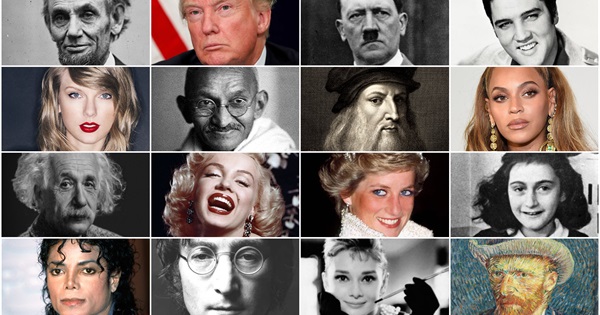The Intricacies of Notability: Demystifying Wikipedia's Criteria for Inclusion

For businesses, individuals, and organizations aiming to secure a presence on Wikipedia, the platform serves as a symbol of credibility and visibility. However, not everyone qualifies. Wikipedia enforces strict notability standards, requiring substantial, independent coverage from reputable sources.
Understanding how Wikipedia defines notability and how to achieve it ethically is crucial. Otherwise, you risk article deletion, rejection, or reputational damage.
What Does Notability Mean on Wikipedia?
Notability is not about popularity—it’s about documented significance.
Wikipedia evaluates notability based on sustained, reliable, third-party coverage rather than momentary fame. Articles must have:
Substantial Media Coverage – Not just a mention, but multiple independent
sources providing in-depth discussion.
Reliable, Fact-Checked Sources – Major publications like The New York
Times, BBC, or Forbes hold more weight.
Third-Party Independence – Wikipedia does not accept self-published
content, press releases, or personal blogs.
Notability Beyond a Single Event – A subject must show lasting
significance, not just temporary newsworthiness.
Wikipedia is not a marketing platform—its guidelines exist to filter out self-promotion and ensure lasting encyclopedic value.
How to Prove Notability?

To pass Wikipedia’s notability test, your subject needs:
-
10+ high-quality references from reputable sources
-
Feature-length media coverage (not passing mentions)
-
Diverse, independent coverage beyond a single publication
Pro Tip: Multiple articles from the same website count as only one source on Wikipedia.
A subject must be the primary focus of multiple articles—mentions in interviews or articles about related topics don’t count.
🔎 Example:
A CEO quoted in articles does not establish notability, but a dedicated
feature in major business publications does.
Common Notability Misconceptions
🛑 Myth 1: A Wikipedia Page Means Instant Credibility
✔ Reality: If your subject doesn’t meet Wikipedia’s standards, the page
will be flagged or deleted.
🛑 Myth 2: Wikipedia Accepts Any Press Mention
✔ Reality: Articles must focus on your subject—not just mention them
briefly.
🛑 Myth 3: Hiring an Editor Guarantees Success
✔ Reality: Even professionally written pages get deleted if they lack
notability.
Where to Get the Right Media Coverage?
Reliable sources for Wikipedia Notability include:
📌 National & Regional News – The Wall Street Journal, Bloomberg, BBC
📌 Industry Publications – Trade journals & respected niche publications
📌 Academic Research – Citations in peer-reviewed journals
📌 Independent Books & Documentaries – Verified, published works
⚠️ Not Accepted:
❌ Press releases
❌ Blog posts & self-published content
❌ Interviews where the subject is not the main focus
❌ Company websites or promotional materials
Navigating Wikipedia's Editorial Landscape
A Wikipedia article may be created for notable subjects organically. However, if notability is questionable, an independent Wikipedia editor may flag it for deletion.
If your subject is borderline notable, a strategic approach is required:
- Engage in Talk Pages – Discuss the article with experienced Wikipedia editors.
- Build More Independent Coverage – Strengthen press presence with new articles from reliable sources.
- Seek Professional Guidance – Work with Wikipedia consultants who follow ethical guidelines.
Ethical Considerations & Conflict of Interest (COI)
Wikipedia advises against self-editing your own page due to conflict of interest (COI). Attempts to manipulate content often lead to:
⚠️ Article Deletion – Wikipedia’s volunteer community actively removes
promotional pages.
⚠️ Account Bans – Editors caught violating COI policies can face long-term
bans.
⚠️ Reputational Damage – A rejected Wikipedia attempt can hurt future
credibility.
The best way to ensure a successful Wikipedia page is to follow notability guidelines and allow independent editors to create the content naturally.
Final Thoughts
In the pursuit of recognition, impact outweighs visibility. Wikipedia values substantive contributions over self-promotion, requiring verifiable, independent recognition.
True notability is achieved through credible media presence and meaningful contributions to public knowledge. Rather than forcing inclusion, focus on building a legitimate digital footprint that stands the test of time.
Words of Wisdom
“In the pursuit of recognition, seek significance, not just attention. Wikipedia is not about who you are, but what lasting contributions you have made.”
Faithfully yours,
The Notorious Wikipedian
Related Posts (1 of 2)
The Strategic Importance of Customized Wikipedia Page Analysis
Maintaining a Wikipedia presence requires proactive evaluation. A customized Wikipedia page assessment helps identify risks, enhance content quality, and ensure compliance with Wikipedia’s evolving standards. Learn how expert analysis can safeguard your digital reputation.
Read article
